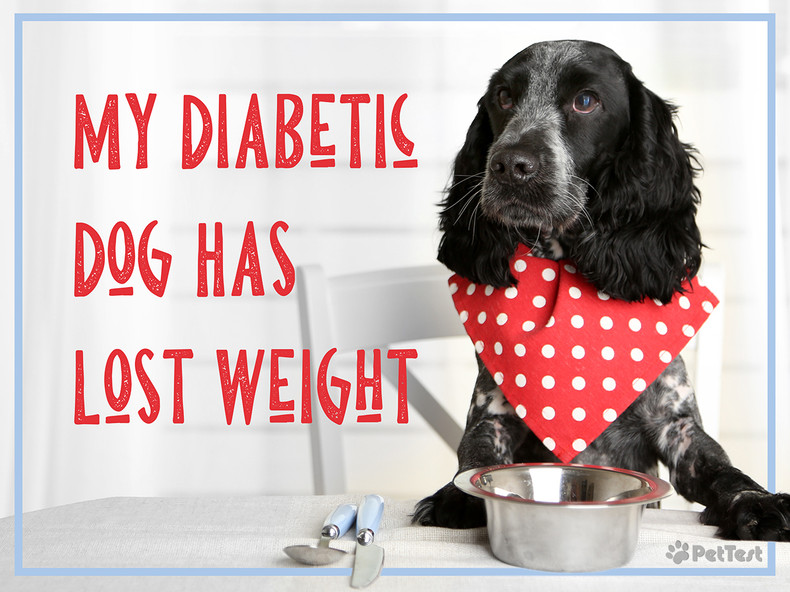My Diabetic Dog Has Lost Weight
Have you noticed that your pup has lost weight? Maybe that was one of the things that led you to the vet and ended in the Diabetes diagnosis? That is very common. When my Max was diagnosed he was ravenous and kept losing weight. I was so worried. The more I learned, the more I understood it, but that didn’t help me fix the problem.
Why is it common for our pups to lose weight when they are first diagnosed? When BG (Blood Glucose) is high, the body can’t absorb nutrients from food. It’s why your pup is always hungry and no matter what you feed, they continue to lose weight. All of their “sugar” is in their blood instead of in the cells where it can be used for energy. Insulin is the key to unlock those cells to allow the glucose to get into the cells where it belongs.
The first step to remedying the weight loss is to get BG (Blood Glucose) down to a place where their bodies can absorb nutrients. Until then, you can add some pure protein like chicken breast to each meal and as a midday snack to keep calories up and not increase BG (Blood Glucose) in the process. The next thing that we need to address is what food your pup is on.
When Max was first diagnosed, he was put on “prescription” food. The one that was recommended at the time was Hills W/D. While many dogs do very well on it, my Max was not one of them. Besides the fact that it is packed with grains, which most Westies do not do well with, it has a HUGE amount of fiber. This food is designed for weight loss. Max had lost so much weight already, that it was not a good combination for him between the very high fiber and all the grains.
Even when his numbers came down, he continued to lose weight no matter what I did. There was a member of our community that thrived on doing research. She read veterinary endocrinology books in her spare time…. I kid you not! I did research every chance that I got, but she put me to shame in that department. An interesting fact that she uncovered in her hundreds of hours of research was that a food that is very high in fiber makes it almost impossible for a dog to gain weight while eating that food. My Max was the poster child for that statement. His stool was voluminous and crumbly dry. I felt so bad for him.
After careful consideration, I decided to change foods so that I could get Max to his ideal weight. There are so many very good options out there that I encourage you to find one that fits your budget and that your pup likes well enough to eat twice a day. There are a few suggestions in the blog entitled “ What Should I Feed My Diabetic Dog?”
So, the long and short of it is to get your numbers down as soon as you can to see your pup’s weight stabilize. When you do finally get the weight loss to stop, make sure that you are feeding for your dog’s ideal weight. If your dog needs to lose some more or to gain some more, make sure that you are feeding for the ideal weight, not for the weight that he or she is now (unless you are where you need to be).
I hope that this helps explain what is happening when you are early in your diagnosis. Above all, just remember to breathe. It will all fall into place and get easier.
Notice that for most of the products or groups that I mention, the text is linked to a website that you can purchase that item or a link to join the group mentioned. Just click on the colored text (red or blue, depending what device you are on) and it should take you right to the item or group. If you have any thoughts or ideas for topics that you’d like to see covered here, please feel free to comment below or send me an email at NancyForPetTest@PharmaSupply.com. As always, please “like” this blog post or any of the others that have helped you or just refreshed your memory. Look for new posts every Monday, Wednesday and Friday!
Until next time…

